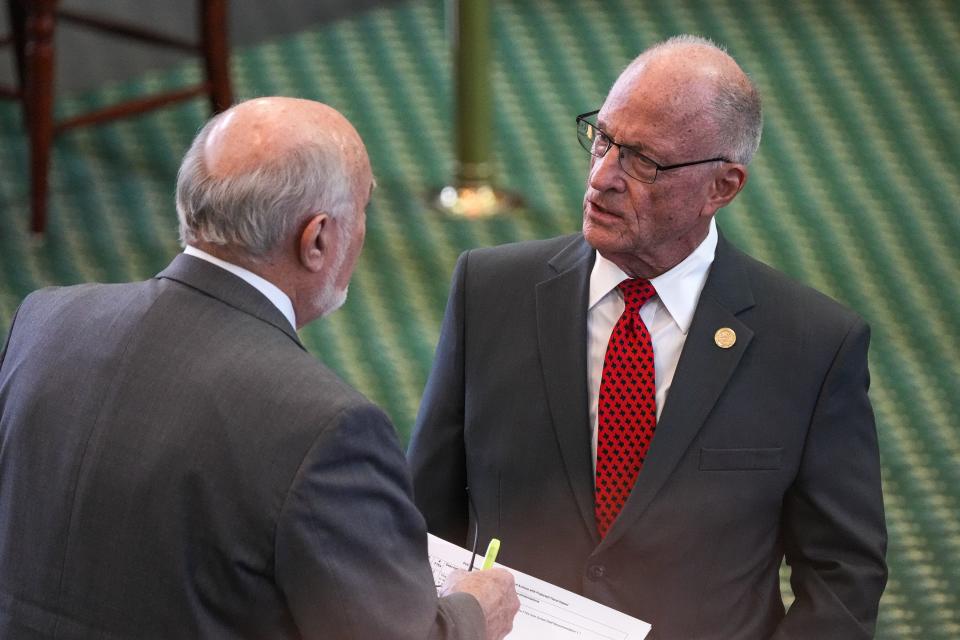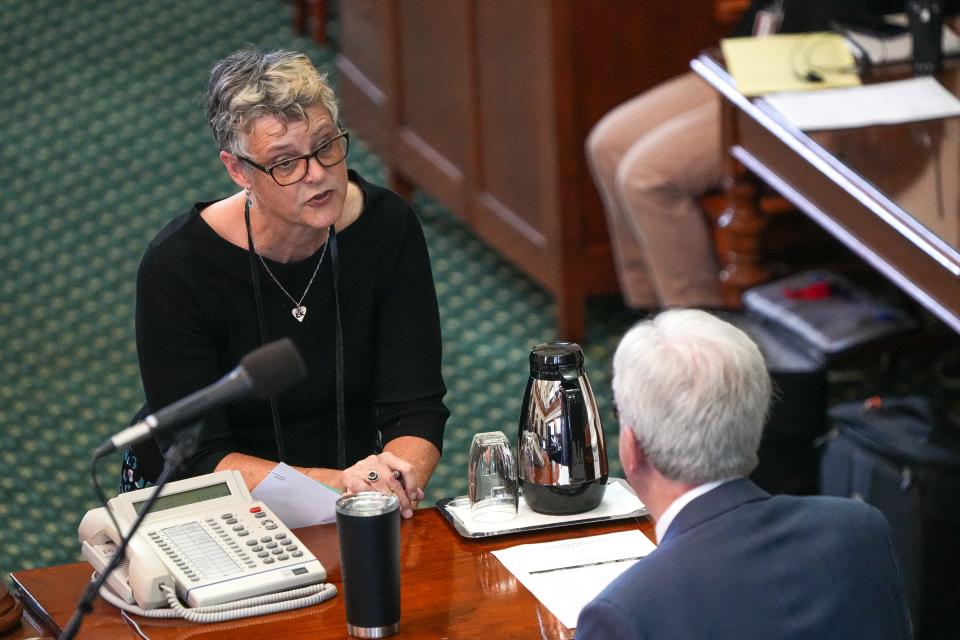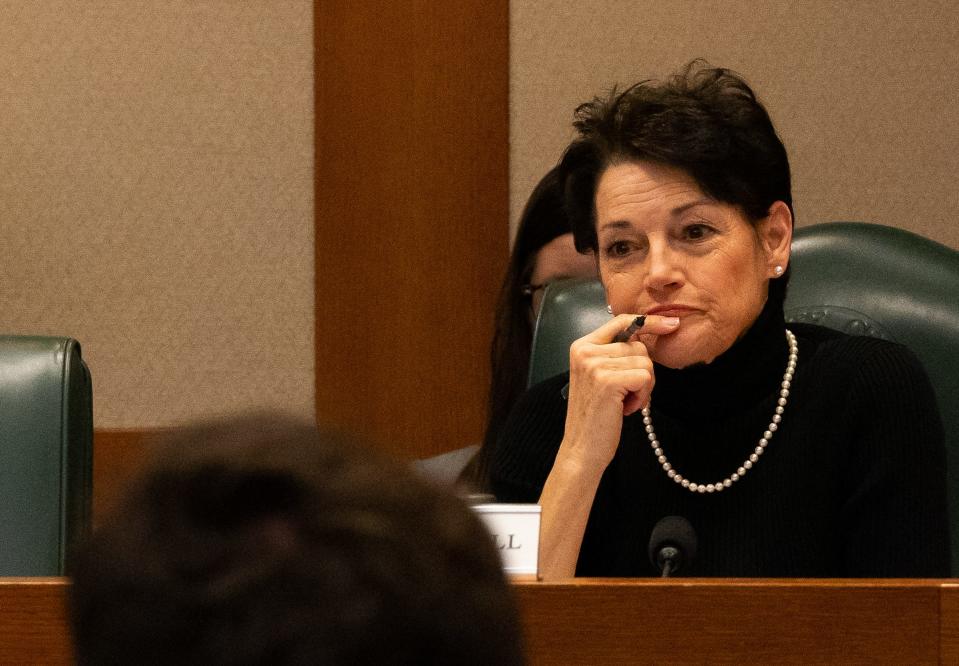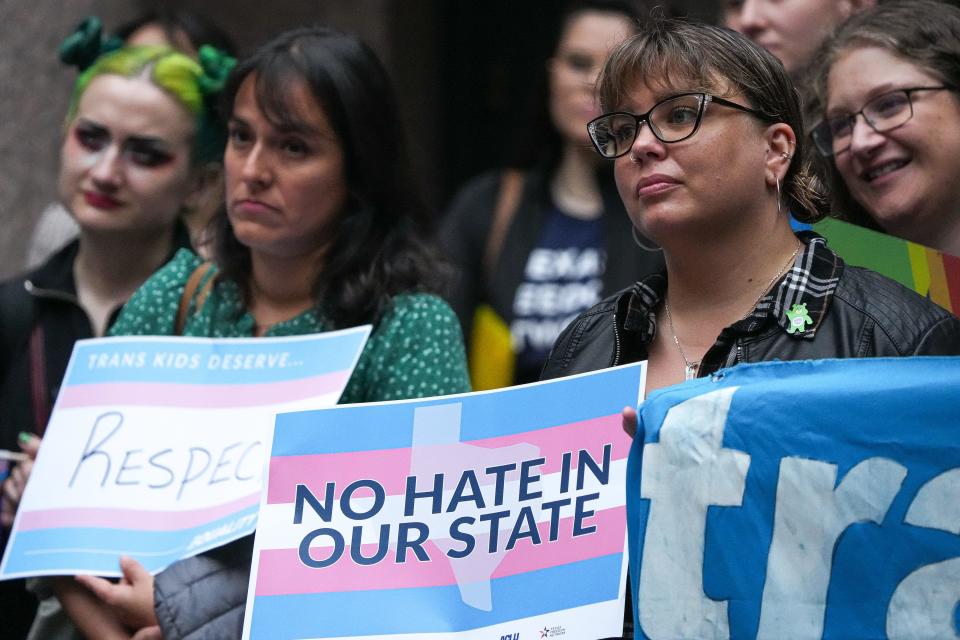Texas Senate advances more gender-affirming care restrictions. Here's what's proposed.
- Oops!Something went wrong.Please try again later.
The Texas Senate on Wednesday advanced restrictions on gender-affirming care, including provisions that would make health care providers liable for malpractice and prohibit public money and state-funded insurance plans from covering gender-affirming procedures and treatments.
Senate Bill 1029 proposes to:
Make private health insurance providers strictly liable for the lifetime care of a patient who receives gender-affirming treatment or procedures covered by a private plan.
Prohibit public funds from being used to provide or administer a gender-affirming procedure or treatment.
Prohibit state-funded insurance plans from covering gender-affirming treatments or procedures.
Make physicians and health care providers liable for malpractice claims for gender-affirming treatments or procedures and the associated costs.
The proposal from Sen. Bob Hall, R-Edgewood, is the latest in a slew of GOP-backed bills targeting gender-affirming health care for both children and adults to advance from the Senate to the House.
SB 1029 is based on "a 2018 video of a Vanderbilt University Medical Center administrator who promoted gender modification surgeries as financially beneficial," the bill states.

Hall said the legislation will not affect a person's right to make personal health care choices, but instead would not allow a physician to "abandon" a patient who suffers negative side effects after a gender-affirming surgery.
"It has no impact at all on legitimate services," Hall said. "This bill is to protect children who suffer at the hands of greedy hospitals and doctors who are willing to do anything for money."
Democrats pushed back against Hall's claims and bill, arguing that gender-affirming procedures and associated health care treatments are considered legitimate by the medical community and that advancing this bill means the state would be making medical decisions for grown and consenting Texans.
"This bill is not about protecting medical service consumers," Sen. Sarah Eckhardt, D-Austin, said on the floor before the bill was passed. "This bill is about preventing procedures that every medical association in the United States recognizes as appropriate and even necessary."

Citing 140 bills filed this session related to the LGBTQ+ community and issues, Sen. José Menéndez, D-San Antonio, called Hall's legislation contradictory to the chamber's stance on allowing Texans to make their own choice on whether to receive the COVID-19 vaccine and pointed to constitutional protections.
"It says right here in the Declaration of Independence, authored by Thomas Jefferson, that they have a right to pursue happiness, as they have been doing long before their issue became a talking point," Menéndez said.
There are few transgender college athletes. Why Texas GOP wants to restrict them in state.
The Senate ultimately approved the bill along party lines with a 19-12 vote Wednesday. The proposal will move to the House for consideration.
Earlier this month, the Senate passed SB 14, which would ban doctors from providing gender-affirming medical care, such as puberty blockers, hormone therapy and certain surgeries, to minors.
At the onset of the floor debate on SB 14, Sen. Donna Campbell, R-New Braunfels, proposed an amendment to exempt patients who are receiving hormone therapy or puberty blockers before the 90-day mark before the bill’s effective date and allowing them to continue their treatments.

Days later Campbell's amendment was removed in response to GOP backlash and is not included in the bill the Senate also approved along a party line vote.
More: Texas Senate cuts amendment that would allow gender-affirming care for current patients
Currently, SB 14 has made it through the House committee process and is eligible to receive a hearing on the House floor.
Another prohibition, seeking to ban transgender college athletes from competing in sports with those who match their gender identity, also advanced to the House on a partisan vote.
Additionally, Sen. Bryan Hughes, R-Mineola, filed Senate Bill 12, to define drag shows as “sexually oriented performances.” The bill would ban those performances in the presence of a minor or on public property and establish a $10,000 civil penalty per violation and make it a Class A misdemeanor.
SB 12 has not been scheduled for a House hearing and SB 15 is up for consideration in the House Higher Education Committee on Monday.
"Trans people may use a variety of cosmetic treatments to feel comfortable in their skin, like others are free to do today, at least for now," Menéndez said before Hall's SB 1029 passed Wednesday. "What's next? Do we tell people they can't have a nose job, breast enhancement, a facelift or Botox?"

This article originally appeared on Austin American-Statesman: Texas Senate advances more gender-affirming care restrictions

